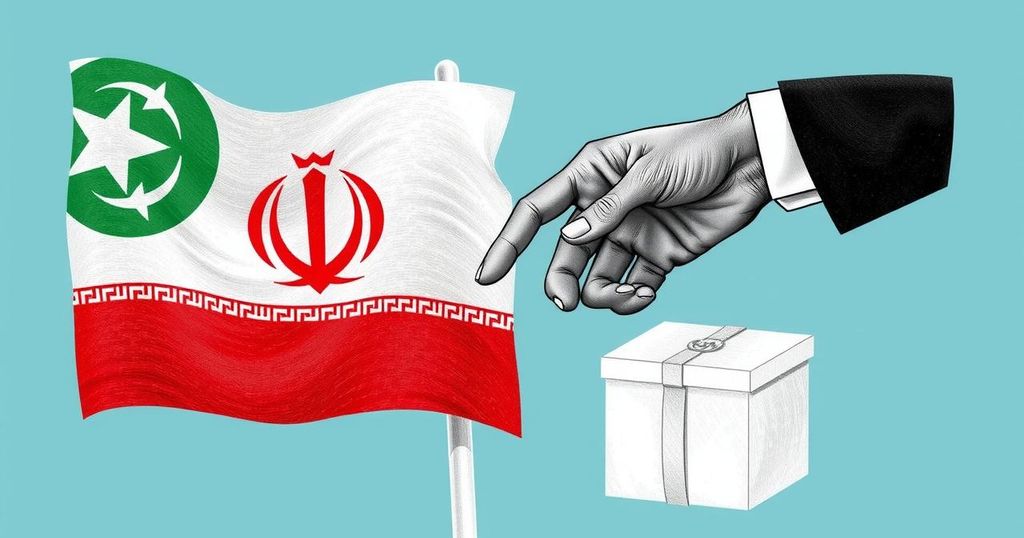World news
ASIA, BIDEN, DONALD TRUMP, HOUSE, HOUSE FOREIGN AFFAIRS COMMITTEE, IRAN, IRAQ, ISLAMIC REPUBLIC, ISLAMIC REVOLUTIONARY GUARD CORPS, KAMAL, KAMALA HARRIS, MIDDLE EAST, NATIONAL SECURITY, NORTH AMERICA, OMAN, POLITICS, PRESIDENTIAL ELECTION, SANCTIONS, STATE DEPARTMENT, TEXAS, UNITED STATES, US, VE, WHITE HOUSE
Ethan Kim
0 Comments
Biden Administration Renews Sanctions Waiver for Iran Post-Election
The Biden administration has renewed a controversial $10 billion sanctions waiver for Iran, allowing it to access funds in Iraq for electricity purchases, despite strong opposition from Republicans. The waiver, now in its 23rd iteration, could potentially provide Iran with means to elevate its regional activities, drawing sharp criticism from lawmakers worried about its implications for terrorism funding. This renewal coincides with uncertainty about future policy directions under an incoming Trump administration.
The Biden administration has renewed a contentious sanctions waiver that permits Iran to securely access approximately $10 billion held in Iraq, just two days following the Election Day victory of President-elect Donald Trump. This waiver, approved by Secretary of State Antony Blinken despite substantial resistance from congressional Republicans, facilitates Iran’s procurement of electricity from Iraq while allegedly allowing funds to be utilized solely for humanitarian purposes. However, this extension, confirmed by State Department spokesman Vedant Patel, raises concerns that such funds could bolster the Iranian regime’s activities beyond humanitarian needs.
The most recent waiver marks the 23rd renewal since its inception in 2018, enabling Iran to transfer payments linked to electricity sales into Omani accounts, creating opportunities for converting funds into other usable currencies. This decision also creates uncertainties regarding Trump’s potential actions upon his anticipated return to office, particularly in light of recent allegations against members of Iran’s Islamic Revolutionary Guard Corps related to cyber activities aimed at undermining the prior presidential campaign. The State Department has noted that the waiver is consistent with policies established during the Trump administration, indicating a complexity in the country’s diplomatic and economic approaches towards Iran.
Despite these historical precedents, Republican leaders, such as House Foreign Affairs Committee Chairman Michael McCaul, express strong opposition to the extension of the sanctions waiver, arguing that it effectively equips the Iranian government with the financial means to support terrorism. McCaul criticized the administration for continuing to allow these waivers, asserting that the U.S. should not contribute to furthering Iran’s detrimental activities. He pointed out that legislative efforts to eliminate these waiver authorities have failed to halt the administration’s course of action. This reflects a broader debate about the balance between regional stability and the containment of Iranian influence.
The sanctions waiver renewal centers on the U.S. government’s longstanding efforts to manage relations with Iran, particularly regarding its access to financial resources. Implemented to support the Iraqi energy sector’s development while also aiming to limit Iranian influence, this waiver has been contentious among lawmakers. Concerns are raised about the potential ramifications of these funds being diverted to support terrorism or nuclear capabilities, which has been a critical issue since the sanctions were first put in place. This backdrop is important for understanding the implications of the recent developments following the election and the prospective shifts in U.S. foreign policy emphasized by both the current and incoming administrations.
In summary, the extension of the Iran sanctions waiver by the Biden administration has reignited intense debate surrounding U.S. foreign policy towards Iran, especially concerning its financial dealings and their potential implications for national and regional security. The arguments presented by critics underscore a persistent fear that financial leniency may ultimately facilitate Iranian terrorism and nuclear ambitions. This situation will demand vigilant scrutiny as the political landscape evolves with the impending transition in leadership.
Original Source: nypost.com




Post Comment